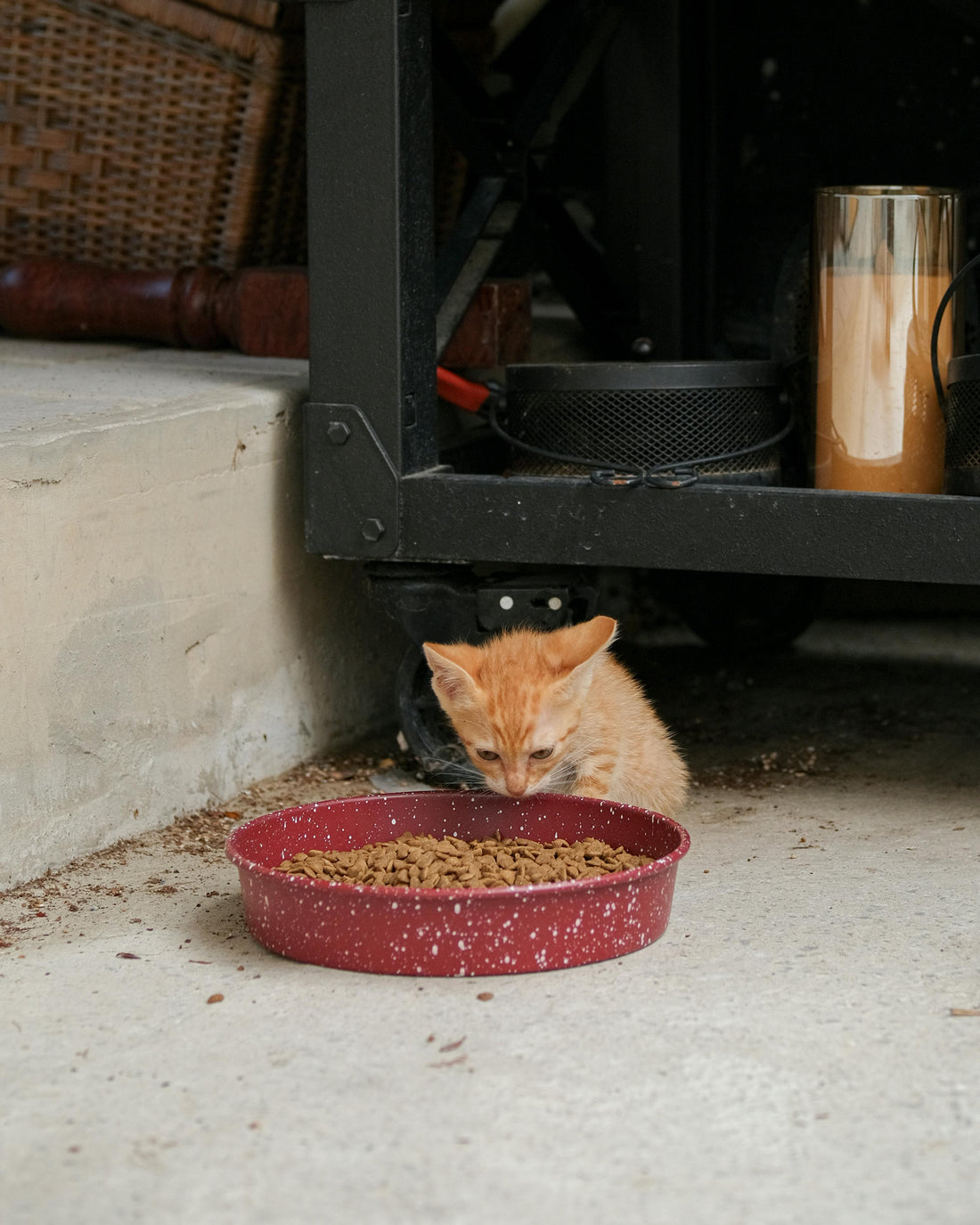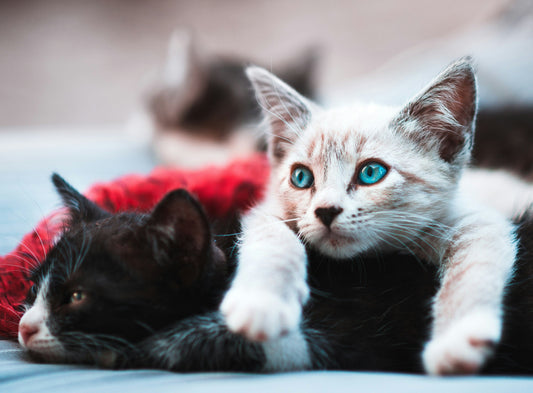
How Much Food Should Your Cat Eat?
Ensuring your kitty gets the right amount of nom-noms is crucial for their health and happiness. But how much is too much, or too little?
In this post, we'll explore the importance of proper nutrition, factors affecting food intake, and provide a general guideline for feeding your feline friend.

The Importance of Proper Nutrition
- Before we dive into the numbers, let's talk about why proper nutrition matters.
- Cats require a balanced diet to maintain optimal health.
- Overfeeding can lead to obesity, diabetes, and other health issues.
- Underfeeding can cause malnutrition and weight loss.

Factors Affecting Your Cat's Food Intake
Before determining how much to feed your cat, consider these factors:
Age
- Kittens (0-12 months): Need more calories for growth and development.
- Adult cats (1-7 years): Require a balanced diet for maintenance.
- Senior cats (8+ years): May need fewer calories due to decreased activity.
Size
- Small breeds (under 10 pounds): Need less food.
- Medium breeds (10-15 pounds): Require moderate portions.
- Large breeds (over 15 pounds): Need more calories.
Activity Level
- Indoor cats: Less active, require fewer calories.
- Outdoor cats: More active, need more calories.
Health Conditions
- Cats with medical conditions may require specialized diets.
The Purr-fect Portion: How Much to Feed
General guideline:
- Average adult cat (10 pounds): 200-300 calories per day
- Divide into 2-3 meals or free-feed
- Consult with your veterinarian to determine the best feeding schedule for your cat.
Fun Facts
- Cats have a unique digestive system, allowing them to thrive on high-protein, low-carb diets.
- A cat's sense of smell is 14 times stronger than humans.

Keep Your Cat Active & Healthy:
Explore our curated selection of cat trees, wall furniture, and catnip to keep your feline friend engaged and active.
Conclusion:
Feeding your cat the right amount is crucial for their health and happiness. Consider their age, size, activity level, and health conditions. Consult with your vet, and don't hesitate to reach out if you have any questions.
Stay informed with our expert advice and product recommendations - sign up for our newsletter below.
Sources:






